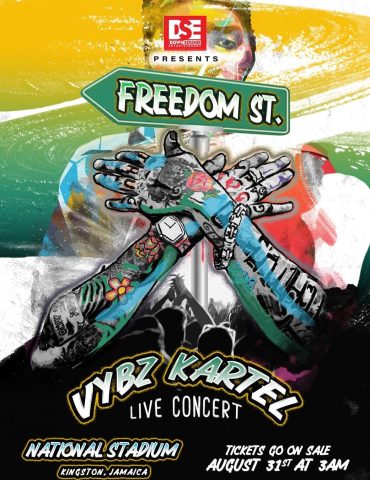
Listeners:
Top listeners:
-
play_arrow
Jahkno! Jahkno Radio
-
play_arrow
Dancehall x Reggae Jahkno! Dancehall Reggae Channel
-
play_arrow
Hip-Hop x R&B Jahkno! HipHop x R&B Channel
-
play_arrow
Afrobeats x Amapiano Jahkno! Afrobeats x Amapiano Channel
-
play_arrow
Gospel Jahkno Gospel
Jamaican musical icon James Chambers (we know him as Jimmy Cliff) was inducted into the Rock and Roll Hall of Fame at a glittering ceremony in New York last week.
Attorney-at-law Christopher Samuda, who along with his brother Milton and associate Dave McKenzie, was present for the historic occasion and reported that the response to Cliff’s performance of Many Rivers to Cross was simply surreal.
The fact is that many Jamaicans do not understand the kind of impact that some of our Jamaican musical legends have on modern popular culture. We have to journey beyond our shores to secure a better understanding of this phenomenon.
It is interesting to note that questions were being raised about the appropriateness of having Swedish pop sensation Abba (reputed at one time to be more important to the economy of their Scandinavian nation than car manufacturers Volvo).
No questions were raised about Cliff’s eligibility, however; among the Rock cognoscenti, he is the genuine article. The Jamaican Government had wisely awarded Cliff with the prestigious Order of Merit and the University of the West Indies has conferred an honorary Doctor of Letters on this distinguished Jamaican.

Cliff was instrumental in launching the career of the other Jamaican artiste who has been inducted into the Rock and Roll Hall of Fame — Robert Nesta Marley. It was Cliff who introduced Marley to the powers that be at Beverly’s Records (a label headed by Leslie Kong, now deceased).
Marley recorded his first two singles, One Cup of Coffee and Judge Not for Kong. Marley would later leave Kong to record for Clement Dodd’s renowned Studio One Label. Interestingly, Chris Blackwell notes that it was the departure of Jimmy Cliff from Island Records that perhaps paved the way for the phenomenal international success of Marley.
According to Blackwell, he had identified Cliff as a potential megastar and had already set the wheels in motion for realizing this objective. Cliff, however, left Island for a more lucrative deal and Blackwell would turn his attention to Marley.
I believe a story about how the lives of these three great Jamaicans intersected has the makings of a great movie. Of course, we should point out that another important figure in this story is the great Ernie Ranglin, who not only served as Jimmy Cliff’s musical director but was the head of A&R for Island Records.
Blackwell has often reminded his audience that My Boy Lollipop is his favorite song of all time. This is understandable given the fact that it laid the basis for the unimaginable success of Island with the subsequent accomplishments of such legendary artists as Marley and U2, to name but a few. It was Ranglin who produced and arranged My Boy Lollipop.
I had the great privilege (which I shared with Nadine Sutherland) of interviewing Jimmy Cliff late last year as part of the CPTC Breakfast with the Stars series. I trust the public will soon be able to get a chance to learn a little bit more about Cliff, who shared some little-known aspects of his life with a live studio audience in this interview.
When Cliff was asked to name which emerging Jamaican artiste has caught his attention. He simply burst into song: “No bwoy can’t carry me roun’ no kawna an show me no banana.” Cliff was clearly referring to Queen Ifrica, whose father, Derrick Morgan, was intimately associated with his own career. Everything seems to be so connected.
Cliff made one of his greatest contributions to the spread of Jamaican popular culture through the film The Harder They Come. The December 2000 edition of Entertainment Weekly lists the release of The Harder They Come in the United States among its One Hundred Greatest Moments in Rock History. The only other Jamaican-related entry was that of Kool Herc “creating hip hop”. Rolling Stone magazine named The Harder They Come “the best soundtrack of all time”.
Bob Dylan described Cliff’s Vietnam as the “greatest protest song ever written”. It is worth noting that artists are usually not very generous in their assessment of their peers and so Dylan’s fulsome praise of Cliff, who is not an American, is truly worthy of comment.
Bruce Springsteen recorded Trapped, which was included on the We are the World album. Trapped was written by Cliff and actually appeared on the B side of one of his recordings. According to the story, Springsteen was walking through an airport and heard the song and the rest, as they say, is history.
Cliff has an amazing story that, sadly, in all likelihood, will be told by others. Since The Harder They Come, we have not had much to show by way of success in the motion picture business. This is not to say we do not have the talent to create great movies. We have cinematographers who are well-trained. We have produced actors who have enjoyed international success, and we have fascinating stories.
However, the upfront (sunk) costs of making movies are prohibitively high. The biggest constraint to the development of our motion picture industry is funding. Trevor Rhone managed to get funding for his movie One Love( which introduced Jamaica and the world to the remarkable talents of Cherine Anderson) from overseas. Some of the money was accessed through the British Council, which provides grant funding for motion picture ventures. We need to establish similar mechanisms to the British Council in Jamaica to provide funding for talented creators.
The fact is that while the costs of creating movies have fallen considerably( due to the advent of digital technology) they are still quite high. What is now happening is that in many instances moviemakers are now avoiding cinematic releases and going directly to DVD.
In fact, some movies now have their cinematic releases after the DVDs have entered the market. Nigeria has spawned a massive motion picture industry through this direct-to-DVD approach. We can do the same in Jamaica. I was really thrilled to hear about the production of the movie Concrete Jungle by a group of Jamaican inner-city youngsters.
Art serves the function of negotiating concerns. Through the process of creating the artiste seeks to gain control of his circumstances. The process of artistic production lends itself to empathy and role-playing. If we are going to arrest the crime monster, which seems bent on destroying our nation, we should look to the art for solutions. Many prisons have been successfully utilising art in their rehabilitation exercises. There is much that we can learn from this.
Written by: jahknoradio
Current show

Upcoming shows

Morning Vibes
6:00 am - 9:00 am

Coffee In Toe
Moments With Mi ????????
9:00 am - 1:00 pm
Gridlock
1:00 pm - 6:00 pm

Sundown
6:00 pm - 12:00 am
Upcoming Events

Artist

Post comments (0)